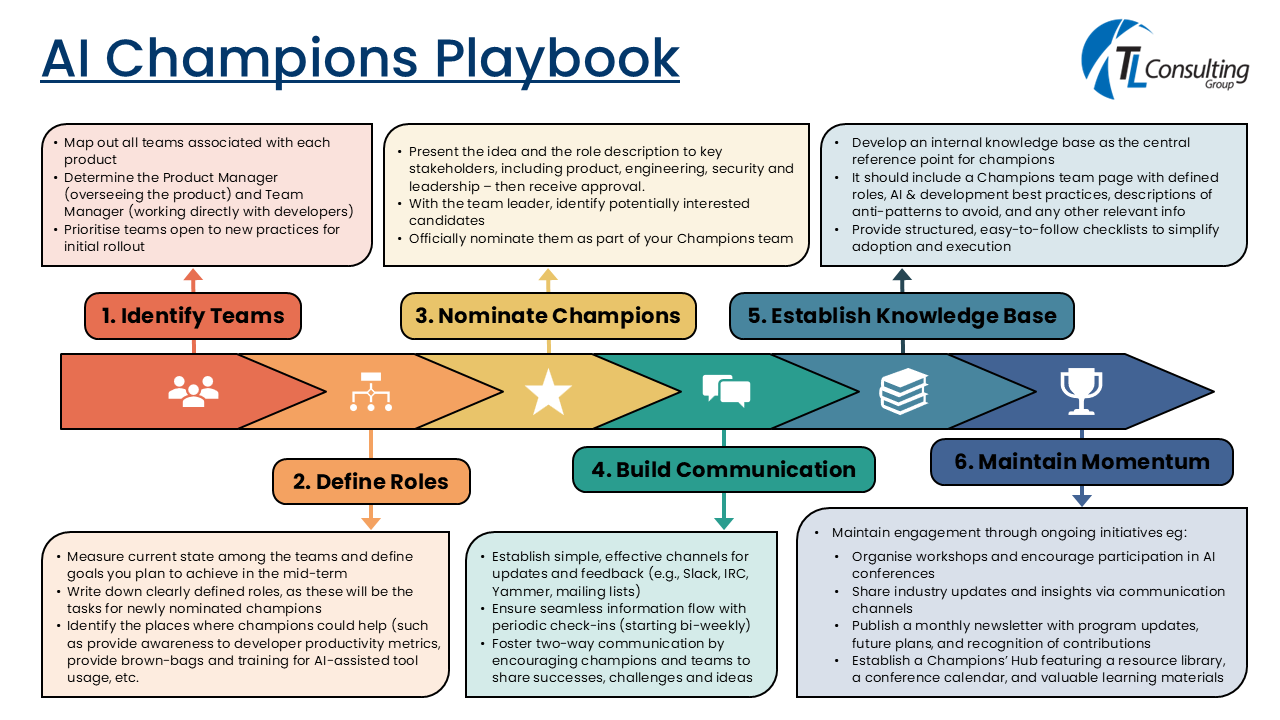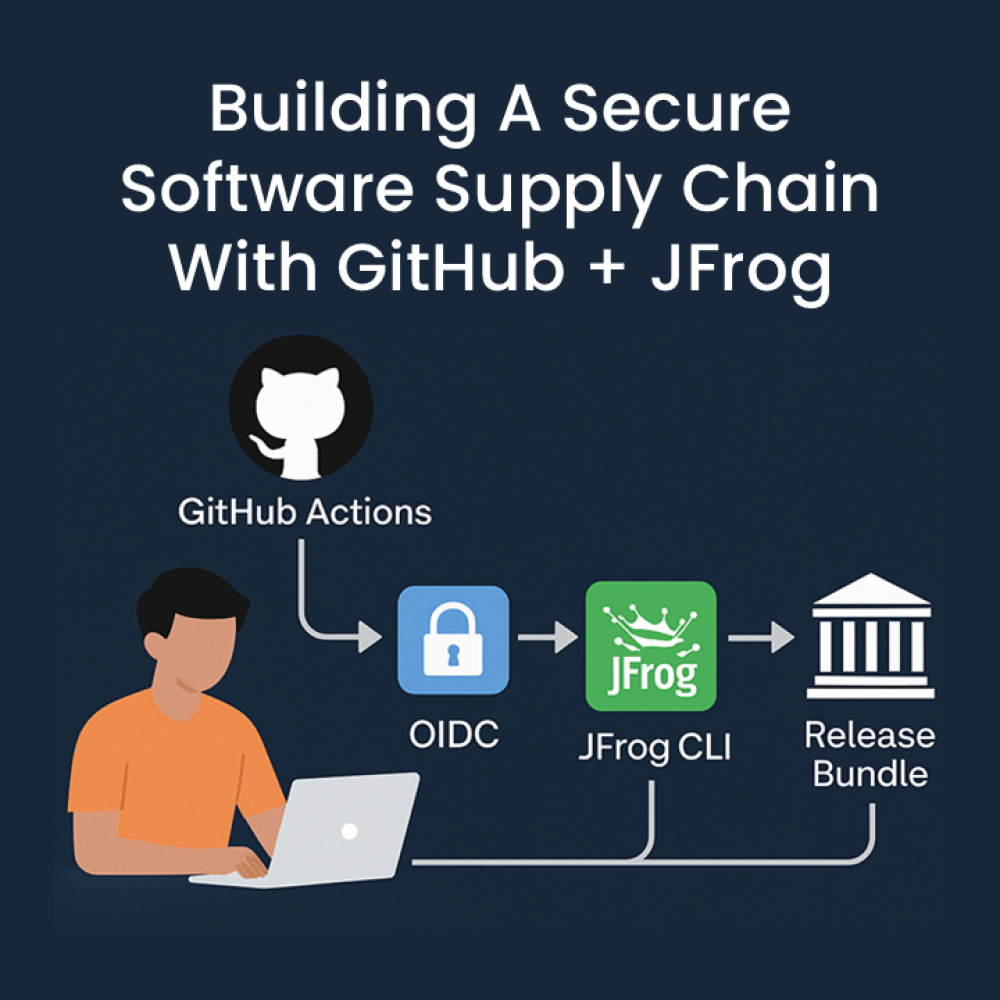GitHub Copilot is an AI-assisted programming tool that complements developers in their day-to-day tasks. It has proven to effectively boost developer productivity in various whitepapers and studies. The productivity gains are significant and are currently providing value that has been measured by various companies already. For example, Salesforce reported a 30% productivity boost from AI-assisted development. Similarly, ANZ Bank found that AI-powered coding tools led to an impressive 42% increase in productivity among its engineers. Even tech leaders like Mark Zuckerberg have highlighted the transformative potential of AI, stating that it will augment engineers with AI-powered coding assistants, further accelerating innovation.
In practice, an adoption framework is necessary to realise the value alluded to in the whitepapers as it is becoming more and more common to see enterprises not unlocking the value that was sold at the onset of their product adoption. For example, one such article mentions that “AI coding tools aren’t the solution to the unfolding ‘developer crisis’ – teams think they can boost productivity and delivery times, but end up bogged down by manual remediation and unsafe code”
GitHub has since created a well-architected framework to assist companies and provide guidelines on how to adopt the GitHub products effectively. In essence, it covers these key points:
- Planning: Develop a detailed plan that includes technical administration, learning & development, and communication strategies. Assign a dedicated individual to oversee the execution.
- Communication: Use multiple channels to communicate the launch and benefits of GitHub Copilot. Repeat the message often to ensure it reaches everyone.
- Executive Sponsorship: Secure support from executives to drive the adoption process.
- Training: Prepare for both instructor-led and on-demand training sessions to help users get started with GitHub Copilot.
- Community Building: Create an internal community or “Expert Hub” to share best practices, success stories, and resources.
- Monitoring and Feedback: Measure adoption, activity, and impact using KPIs. Continuously gather feedback and improve the program.
With these points in mind, it is important to understand that not all companies are equal and some may have neither the capability nor the capacity to satisfy all aspects of the framework. Increasing trust in AI tooling and enabling champions is key to driving adoption and this can only be achieved through cultural transformation if champions do not exist within the organisation. In some cases, organisations are also not fully transformed, thus requiring additional transformation effort to embed champions into existing lifecycles – early adopting teams only. Borrowing from DevOps culture, TLC have come up with an opinionated view that has been derived from experience and working in transformation:

Utilising a partner with expertise in GitHub Copilot in combination with the outlined framework is essential to scaling and augmenting teams in its continued use of AI assistance for continually improved and realised gains in developer productivity. Recommendations include:
- Ensuring the right guard rails are already in place through maturity assessments and health checks (see GitHub health checks) whilst also providing recommendations via roadmaps on tangible outcomes to achieve said guard rails from a Software Development Lifecycle (SDLC) context. Prevention of low-quality and insecure code is paramount to working with AI-assisted programmer tooling.
- Regular brown-bag/training sessions/hackathons that are sponsored by GitHub or the partner company to ensure seamless and continued support of the usage and adoption of GitHub Copilot that are focused on “Train the trainer” type services. This ensures that your own company can scale and be more cost-efficient in the rollout of training for your staff based on metrics.
- Champions embedded across multiple cross-functional teams (project and operational) that are working on a combination of critical and non-critical products / services – starting with non-critical first so as to be less disruptive. Ramp up accordingly as teams gain more confidence in utilising and embedding GitHub Copilot in their everyday use. Scaling the rollout in a linear fashion is a fallacy and should be avoided at all costs.
- Continually improve on metrics, analysis and insights obtained from tooling and guided by industry standards around developer productivity as they are evolving.
- Attendance of industry events and meet-ups to learn about the continually evolving products and trends around AI assisted programmer tooling.
Summary
In short, understanding how to scale the community of practice, improving trust in AI with guardrails and culturally transforming the teams are crucial to realising results suggested in all developer productivity whitepapers and studies.
As one of the few certified Australian companies specialising in DevOps with GitHub, we are uniquely positioned to address your GitHub needs. Get in touch with one of our GitHub specialists to see how we can drive business success for your organisation.

